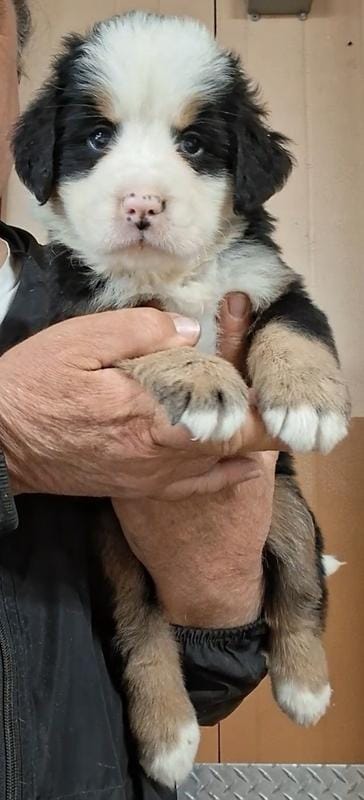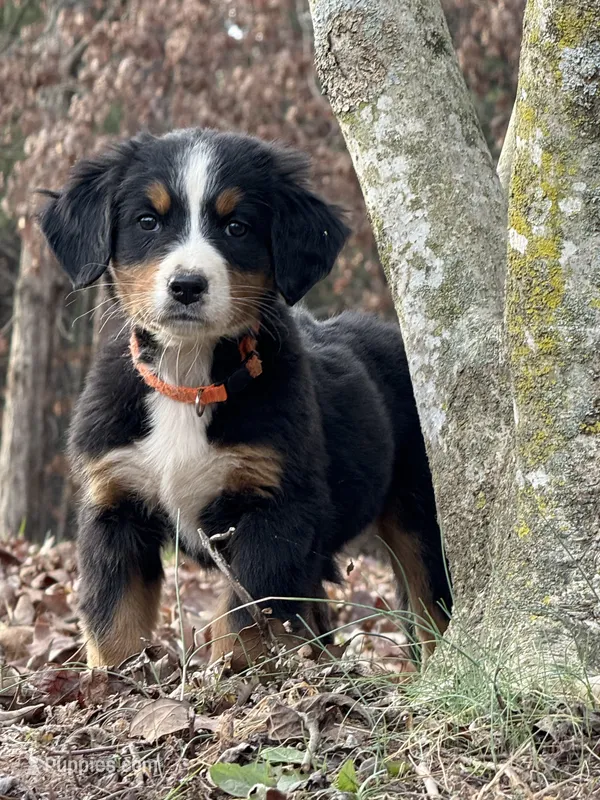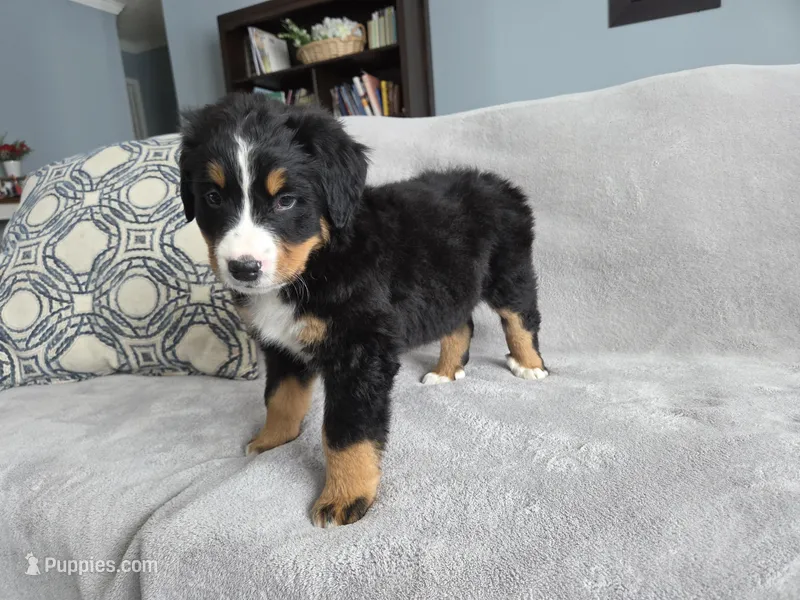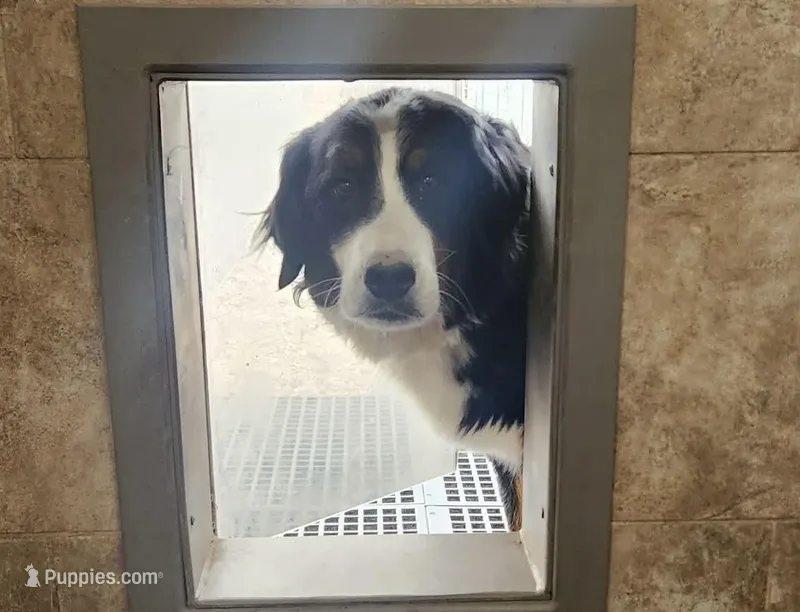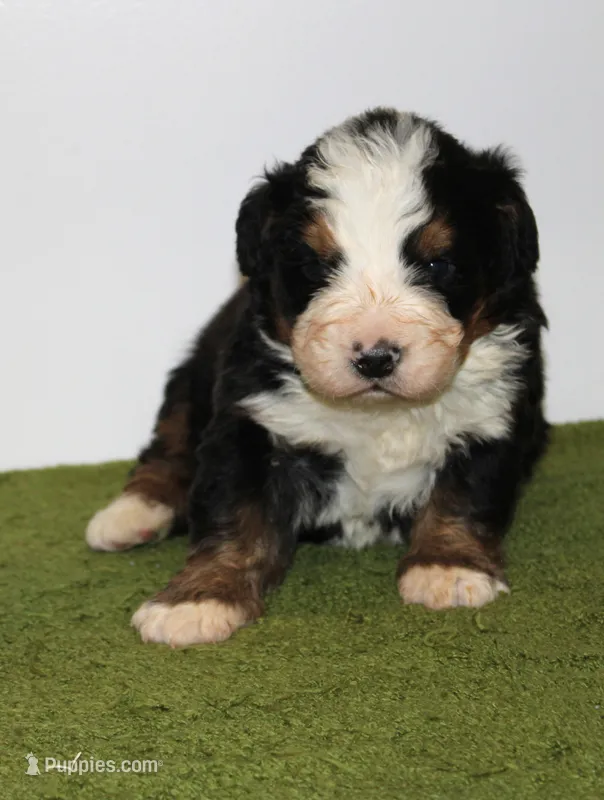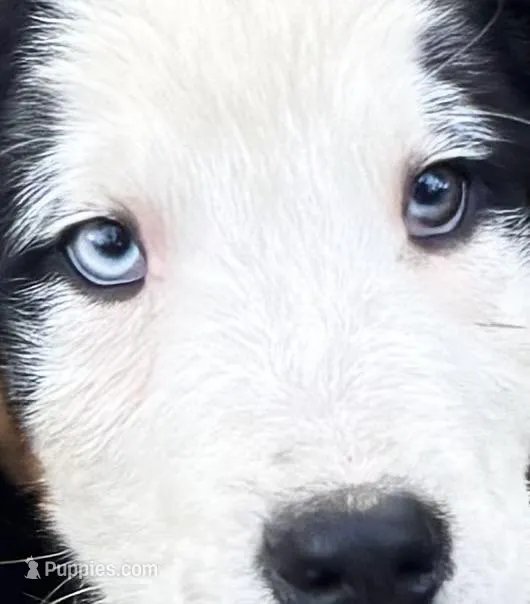Bernese Mountain Dog
Breed Group: working
"Don’t be fooled by my size; I’m a big bundle of love!"
Breed Profile
The Bernese Mountain Dog may look big and powerful from the outside, but they’re softies on the inside. This Swiss breed is known for their warm personality, loyalty, and tri-color fur. If you’ve been searching for a loving, protective companion, Bernese Mountain Dogs may be the perfect fit.
Behavior
Bernese Mountain Dogs are friendly, vigilant, and fiercely loyal to their families. They love being active, but at the end of the day, all they want is your love and attention. This breed is smart and protective, but not aggressive. They’ll alert you to unfamiliar visitors with a loud bark and may be dominant if other Bernese Mountain Dogs are around. They are terrific around kids and pets, as long as they’ve been socialized and acquainted with one another.
Coat
You can recognize Bernese Mountain Dogs by their tri-color pattern. They’re known for having solid black bodies, legs, heads, and ears; rust-colored or tan cheeks and calves; and a white chest, muzzle, toes, and tail tip. Almost all Bernese Mountain Dogs look similar, although the amount of white in their coat may vary. Their undercoat is dense, with a medium-length straight or curly outer coat that sheds frequently. The breed’s hair is weather resistant and may feel rough but not too harsh to pet.
Lifestyle
Bernese Mountain Dogs are great with children and will protect their families no matter what. They can play nicely with cats and other pets as long as they’ve been socialized. Because of their size and exercise needs, these dogs require a lot of space and prefer homes with large yards over apartments. Above all, Bernese Mountain Dogs require companionship and attention, so as long as they’re by your side, their tails will be wagging.
Activity
Bernese Mountain Dog are fans of exercising and being outdoors. Their thick coats are perfect for cold weather, but whether it’s summer or winter, they love running and playing off leash as much as possible. However, when your Bernese Mountain Dog is still a puppy, try to avoid hard exercise so they can save their energy to grow and build strong bones. During training, handle them with a loving, consistent approach and an even keel. They’re eager to learn and will be responsive to your voice during exercises and other activities.
Characteristics
Space Needs
Activity Needs
Intelligence
Playfulness
Grooming Needs
Trainability
Watch Ability
Dog-friendliness
Child-friendliness



